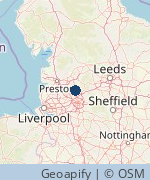1826 Weavers Uprising and Chatterton Massacre
Dr David Gordon Scott
- Organisation:
- The Open University
- Regions:
- Lancashire, Greater Manchester, Durham, Tyne & Wear
- Notice Period:
- Regular (more than one month's notice)
- Type:
- Professional
- Fee:
- Expensed
- Category:
- History
- Updated:
- 15th July 2025
- Tagged:
- 1826 | Lancashire History | Massacre | Uprising
Nearly 200 years ago, the people living in Pennine Lancashire experienced great hardship and poverty. The 1825-1827 economic depression resulted in tens of thousands facing the real possibility of starvation. The plight of the handloom weavers was particularly desperate - facing low wages, unemployment and the emergence of the powerloom. In April 1826 thousands of ordinary people collectively rose up in a desperate attempt to alleviate their dire situation. They focused on the destruction of the powerloom as a way of sending a symbolic message to those in power. Over four days - from 24th - 27th April 1826 more than 1,100 powerlooms were destroyed. The protestors were met with bullets rather than bread - resulting in the Chatterton Massacre on 26th April 1826. This talk will cover the context of the uprising; the events themselves, including the massacre at Chatterton; the aftermath of the rising and the work of the Weavers Uprising Bicentennial Committee to commemorate this monumental historical event in 2026.
Views: 784 | Enquiries: 5About Dr David Gordon Scott
Dr David Gordon Scott works at The Open University.
He is the chair of the Weavers Uprising Bicentennial Committee - a registered charity formed in 2021 to commemorate the April 1826 Weavers Uprising and Chatterton Massacre.
He has also led the bicentennial commemorations for the 1825 North Sands Massacre, in Sunderland and his research is currently focused on the legal repression of protesters in the 1820s and the lessons for today.
Dr Scott has worked for over 30 years in British Universities and had published over 10 books and more than 100 book chapters or journal articles.
You can find out more about his work if you put 'David Gordon Scott' into the Google (and other) search engine.
Other Talks on SpeakerNet by Dr David Gordon Scott
Send a message to the speaker
If you are interested in this talk and wish to contact the speaker, please complete the following form:


